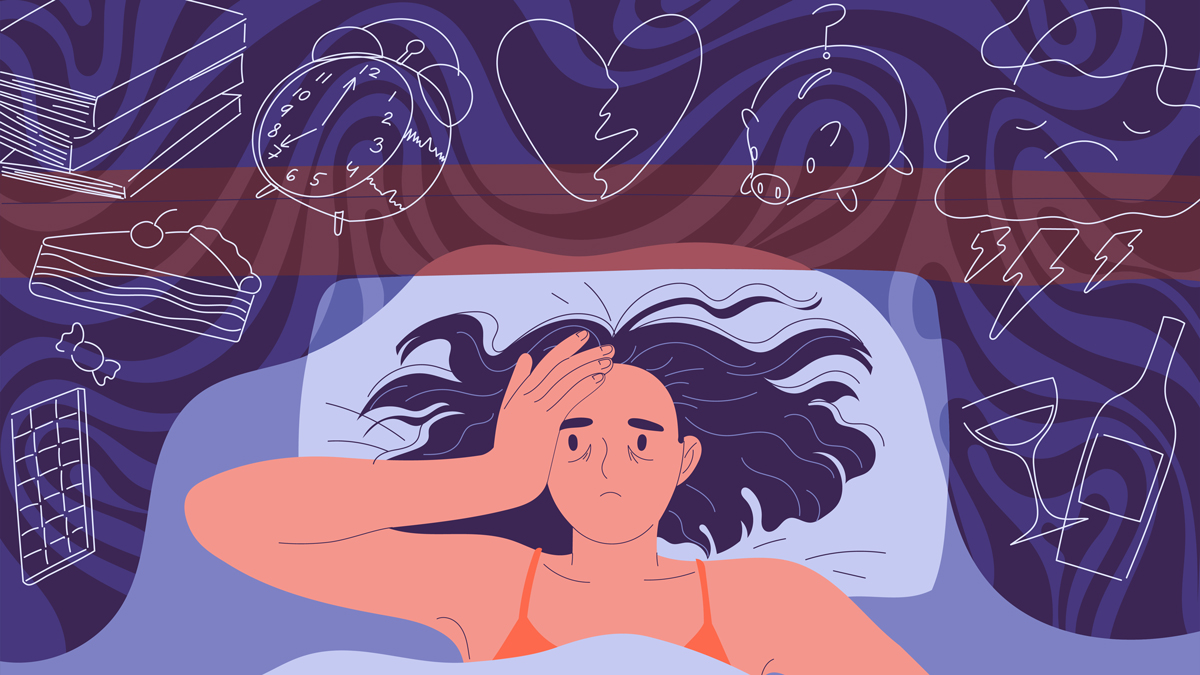Did you know that people who sleep less than six hours a night are 2.5 times more likely to experience frequent mental distress? According to the CDC, sleep deprivation is strongly linked to increased stress, anxiety, and emotional instability.
Sleep isn’t just about feeling rested—it’s essential for your mental health. Poor sleep weakens emotional resilience, making it harder to cope with daily stressors and increasing the risk of anxiety and depression. In this article, we’ll explore how sleep affects mental health, why poor sleep weakens emotional resilience, and how you can improve your sleep to feel calmer and more balanced. Plus, we’ll share a highly recommended sleep aid that can help you fall asleep faster and wake up refreshed.
How Poor Sleep Weakens Emotional Resilience
Emotional resilience is your brain’s ability to handle stress, adapt to challenges, and recover from setbacks. Without quality sleep, your brain struggles to regulate emotions properly, making you more prone to anxiety, mood swings, and frustration. Here’s why:
1. Sleep Disrupts the Brain’s Emotional Processing System
- The amygdala, the part of the brain responsible for processing emotions, becomes overactive when you’re sleep-deprived. This makes you more reactive to stress and negative emotions.
- The prefrontal cortex, which helps regulate emotions and rational thinking, functions less efficiently, leading to poor decision-making and increased impulsivity.
2. Lack of Sleep Increases Cortisol (The Stress Hormone)
- Sleep deprivation causes higher cortisol levels, making you feel more anxious, irritable, and easily overwhelmed.
- Chronic sleep loss can keep your body in a constant state of stress, making it difficult to relax.
3. Poor Sleep Reduces Your Ability to Cope with Stress
- Well-rested people can handle setbacks calmly, but those with poor sleep tend to overreact to minor stressors.
- Without adequate sleep, you may feel more emotionally fragile, leading to burnout and exhaustion.

The Connection Between Sleep & Mental Health
Poor sleep is not just a side effect of stress—it actively contributes to mental health issues. Here’s how:
1. Sleep Deprivation and Anxiety
- Studies show that people with insomnia are 17 times more likely to develop anxiety disorders.
- Lack of sleep makes it harder for the brain to turn off the “fight-or-flight” response, leading to constant feelings of worry and nervousness.
2. Sleep and Depression
- 75% of people with depression experience sleep disturbances.
- Poor sleep affects serotonin production, which is crucial for mood regulation.
- Sleep loss makes it harder to find joy in activities and deepens feelings of sadness or hopelessness.
3. Sleep and Emotional Stability
- Sleep helps regulate mood and enhances positive emotions.
- Poor sleep increases irritability, emotional outbursts, and feelings of frustration.

How to Improve Your Sleep for Better Mental Health
1. Stick to a Sleep Schedule
Your body has an internal clock (circadian rhythm). Going to bed and waking up at the same time each day helps regulate sleep cycles, making it easier to fall and stay asleep.
2. Create a Relaxing Bedtime Routine
- Avoid screens (phone, TV, computer) 30-60 minutes before bed.
- Try deep breathing, meditation, or light stretching to calm your nervous system.
- Read a book or listen to calming music to signal your body that it’s time to sleep.
3. Optimize Your Sleep Environment
- Keep your room cool, dark, and quiet.
- Invest in a comfortable mattress and pillows.
- Use blackout curtains or a sleep mask if light disturbs you.
4. Limit Stimulants Before Bed
- Avoid caffeine at least six hours before bedtime.
- Limit alcohol and nicotine, as they can disrupt sleep quality.
5. Try Natural Sleep Aids
If you struggle to fall asleep, a natural sleep aid can help regulate sleep patterns and promote relaxation.
👉 Best Selling Sleep Supplement – Get Deeper, More Restful Sleep! This natural sleep supplement promotes relaxation, reduces stress, and helps you wake up refreshed!
The Power of Deep Sleep on Emotional Health
Getting quality deep sleep is one of the best things you can do for your emotional well-being. Here’s how deep sleep boosts mental resilience:
- Enhances Emotional Regulation – Deep sleep stabilizes mood and helps you handle stress better.
- Improves Memory & Cognitive Function – Good sleep strengthens problem-solving skills and decision-making.
- Boosts Energy & Motivation – When well-rested, you feel more positive, focused, and productive.

Final Thoughts: Prioritize Sleep for a Healthier Mind
Poor sleep weakens emotional resilience, making you more prone to stress, anxiety, and mood swings. The good news? You can take control of your sleep habits and improve your mental well-being starting tonight.
By following a consistent sleep routine, creating a calming environment, and using natural sleep aids, you’ll set yourself up for better rest, less stress, and improved emotional balance.
📌 Ready to improve your sleep? Try this top rated sleep supplement wake up refreshed!

Comments are closed